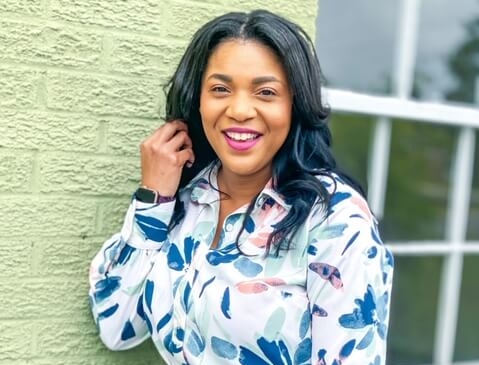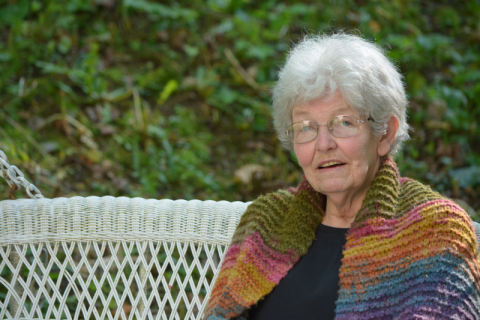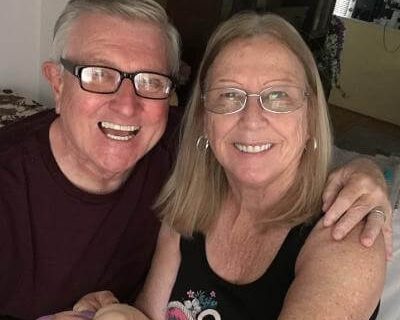Impact of Being an Atypical Mesothelioma Patient

Fact Checked | Written by: Tamron Little | Last Update: 10/23/2024 | 6 Min Read
Can you picture something for a second? Dive into your imagination and pretend you’re a medical student. You’ve been studying different types of rare cancers the entire term, including mesothelioma, and now testing day has arrived.
You’ve received your test and you jump in, coasting right through. You get to one question where you have to match the patients with a cancer diagnosis given their demographics.
The question reads:
| Patient # | 1 | 2 |
|---|---|---|
| Name | John Doe | Tamron Little |
| Age | 67 | 21 |
| Occupation | Military | College Student |
| Race | White | Black |
You say to yourself, “Oh, this is easy right here, I’ll go with Patient #1, John Doe, given the ‘textbook’ demographics and research on mesothelioma.”
What if I told you the answer wasn’t that easy? Both of these patients could have been diagnosed with mesothelioma. Patient #2 was me!
Mesothelioma Affects All Demographics
Research tells us that the typical mesothelioma patient is a man older than 65 with a blue-collar or military background. Most patients are diagnosed with mesothelioma at 65 years of age or older.
Mesothelioma in young people accounts for less than 5% of all diagnoses. The risk of developing mesothelioma is 10 times higher for people older than 60 compared to people younger than 40.
I know you’re probably thinking that I definitely don’t fit the description. I know!
This coming June will be 14 years since I was diagnosed with peritoneal mesothelioma and started my cancer-free journey. At the beginning I was misdiagnosed when I was pregnant and told I had a fibroid tumor. Doctors told me they would keep an eye on it with routine ultrasounds, which later turned into being prescribed birth control to shrink it.
When doctors saw it wasn’t shrinking with the help of the birth control, they decided to do surgery. A simple laparoscopic surgery changed my life. The surgery went well, but the news I was told afterward stopped me in my tracks. “You have cancer – mesothelioma to be exact,” is what the doctor said, standing at the foot of my bed in the recovery room.
Wait – what did he just say? I have cancer? No. I’m too young! Mesothelioma – what’s that? All of that and more was going through my head at the time.
Atypical Mesothelioma Survivor
When I finally researched mesothelioma, I was still in shock. I’m not old, I don’t work in a shipyard, I’ve never been in the military. And, again, I’m not old.
According to recent statistics, mesothelioma in women accounts for nearly one-fourth of all cases. Women are nearly twice as likely to be diagnosed with mesothelioma before age 65 compared to men. I was barely 21.
Even though I wasn’t your typical peritoneal mesothelioma patient, my age was very beneficial for my treatment options. At the time, I wasn’t aware of any doctors who treated mesothelioma. But I always say that I was in the right place at the right time.
I was introduced to Dr. Edward Levine, who was the only one on the East Coast at the time who was performing the HIPEC surgery. He mentioned that I was a great candidate due to my age, my good health and the early stage the cancer was in.
At the time my mind was set on having the surgery and getting rid of the cancer, and I expressed this many times to my doctor. The thought of having more children really didn’t dawn on me until after my surgery during his postoperative visit.
I was hesitant to ask if I would be able to have more kids, but I asked anyway. My doctor told me to be grateful for the one I had because having more children was very unlikely. Well, to make a long story short, I had three more children.
Finding Support in the Mesothelioma Community
Fourteen years ago there wasn’t much awareness about mesothelioma. It is a rare cancer, and having peritoneal mesothelioma makes it even more rare.
I didn’t find anyone who had had mesothelioma until years – more like a decade – later, after I was diagnosed. I do wish I had able to connect with other mesothelioma survivors during the time I was battling cancer.
Having cancer does make you feel alone. But when you can go through it with someone else who can resonate with you it makes such a difference.
As with finding other patients, resources were hard to find as well when I was diagnosed. There wasn’t a lot of research on this type of cancer, let alone on someone 21 years old having it. To be honest, I was just winging it and writing my own story of how I wasn’t your typical mesothelioma patient and still beat the disease.
Now, there are so many resources for people who have mesothelioma – survivors and even caregivers – that can offer support. Start with your doctor and care team. They will be able to give you information on resources in your area.
Some helpful resources include:
- Online Support Groups. There are several support groups available, such as The Mesothelioma Center’s online support group at Asbestos.com. You can also speak with one of their Patient Advocates.
- American Cancer Society. Visit them online and they will direct you to organizations that can offer you some assistance.
- United Way. This organization has a lot of resources, and can provide information on local and statewide assistance.
- Niche Facebook Groups. The Mesothelioma Center at Asbestos.com actually has a Facebook support group. Many people, whether patients or caregivers, tell their stories, ask questions and share information with one another.
I may not have been your typical peritoneal mesothelioma patient, and that’s OK. Let’s just say I’ve broken the mold. Remember the saying, “Don’t judge a book by its cover,” because you never know!
I’m grateful for my healing, my journey and how far I’ve come.
Signed, a 14-year-and-counting peritoneal mesothelioma survivor.





